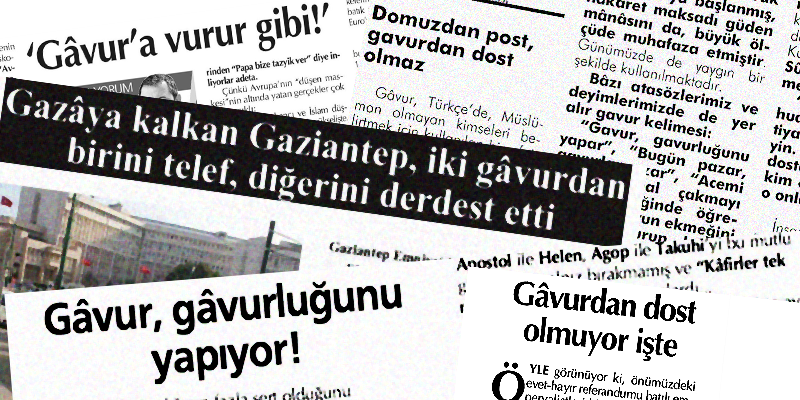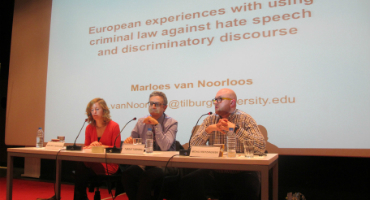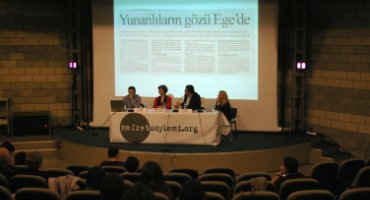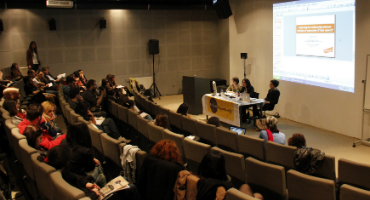The report titled Giaour Discourse in Print Media examines how the word ‘giaour’ is used, which has various historical, sociological and linguistic connotations, in a context within which non-Muslim identities are associated with mercilessness, cruelty and enmity. We tried to reveal how the usage of the word ‘giaour’, in daily life and media alike, isolates non-Muslims living in Turkey and put them in a fragile position by alienating them.
The report is opened by sociologist Arus Yumul’s article in which she discusses the historical and social background of the ‘giaour’ discourse and etymology of the word. This article is followed by an analysis regarding how this discourse is constructed in print media on the basis of religious references and perception of enmity coming from the past. This analysis, which discusses news articles and columns targeting non-Muslims in Turkey and Western states, ends with a discussion on the expression ‘giaour Izmir.’ In the second chapter, the usage of the word ‘giaour’ is discussed in terms of how and in which context it was used as a political propaganda tool in the process leading to the referendum. After the third chapter, which focuses on the article criticizing the ‘giaour’ discourse, the report ends with the conclusion summarizing the report.
About the Media Watch on Hate Speech project
The overarching aim of the study ‘Media Watch on Hate Speech’, which has been carried out by the Hrant Dink Foundation since 2009, is to contribute to combating racism, discrimination and intolerance in Turkey. Taking into account the importance of civilian oversight on the media, as one of the instruments for producing and reproducing racism, discrimination, and alienation; the specific goal of this study is to foster newspapers’ respect for human Rights and differences, draw attention to the discriminatory language and hate speech targeted towards people and groups about their certain identity characteristics; and thereby raise awareness.
As part of the study carried out by the Foundation to achieve the abovementioned goals, the national and local press are monitored and news stories and opinion columns that feature discriminatory, alienating and target-making discourse are identified, analyzed and brought to public attention through reports.
As of 2013, case studies for discriminatory discourse have been included in this systematic media monitoring study. A different issue on the public agenda is scrutinized every four months and a specific research methodology is developed for the topic to conduct a discriminatory discourse analysis. The aim of these analyses is to examine more indirectly constructed discourses that voiced discriminatory messages more implicitly than hate speech. Thematic subjects of discriminatory discourse reports published so far are as follows:
- Black Sea Visit of HDK and BDP Representatives
- Discriminatory Discourse of the Print Media in the Coverage of Gezi Park Protests
- The Alevi File: Not Explicitly Negative News, But Still Discriminatory
- The Armenian Genocide Remembrance Day One Year Left to the 100th Commemoration
- The Operation Israel Launched against Gaza and Discriminatory Language towards Jews in Media
- Discriminatory Discourse against Syrian Refugees in Local and National Press
- April 24 Armenian Genocide Remembrance Day in Print Media 1995-2015
- Four Day War in Nagorno-Karabakh and the Discriminatory Discourse Analysis of the Media in Azerbaijan, Armenia and Turkey
- Discriminatory Discourse in News Stories on Murders of Transgender Women





